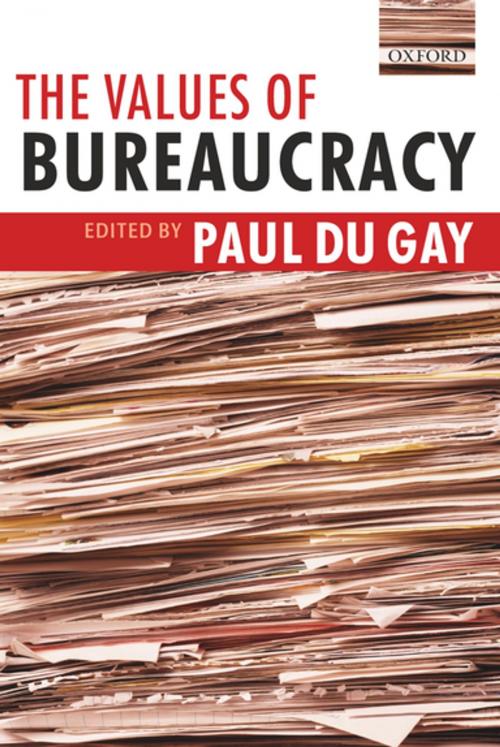The Values of Bureaucracy
Business & Finance, Human Resources & Personnel Management, Organizational Behavior, Nonfiction, Social & Cultural Studies, Political Science| Author: | ISBN: | 9780191647734 | |
| Publisher: | OUP Oxford | Publication: | March 17, 2005 |
| Imprint: | OUP Oxford | Language: | English |
| Author: | |
| ISBN: | 9780191647734 |
| Publisher: | OUP Oxford |
| Publication: | March 17, 2005 |
| Imprint: | OUP Oxford |
| Language: | English |
The end of bureaucracy has been anticipated many times throughout the history of management science, as well as in modern social and political theory. This book sets out to show why bureaucracy persists and what values it embodies and upholds. Thus the book seeks to show how and why bureaucratic forms of organization have played, and continue to play, a vital and productive role in ordering our political, social, economic, and cultural existence. The book also describes and analyzes the impact of contemporary programmes of organizational reform in the public and private sectors on bureaucratic structures, and seeks to highlight some of the costs of attempts to de-bureaucratize organizational life in business, government, and the third sector. Overall the volume highlights the values of bureaucracy and at the same time indicates why distinctively bureaucratic forms of organization should continue to be valued.
The end of bureaucracy has been anticipated many times throughout the history of management science, as well as in modern social and political theory. This book sets out to show why bureaucracy persists and what values it embodies and upholds. Thus the book seeks to show how and why bureaucratic forms of organization have played, and continue to play, a vital and productive role in ordering our political, social, economic, and cultural existence. The book also describes and analyzes the impact of contemporary programmes of organizational reform in the public and private sectors on bureaucratic structures, and seeks to highlight some of the costs of attempts to de-bureaucratize organizational life in business, government, and the third sector. Overall the volume highlights the values of bureaucracy and at the same time indicates why distinctively bureaucratic forms of organization should continue to be valued.















